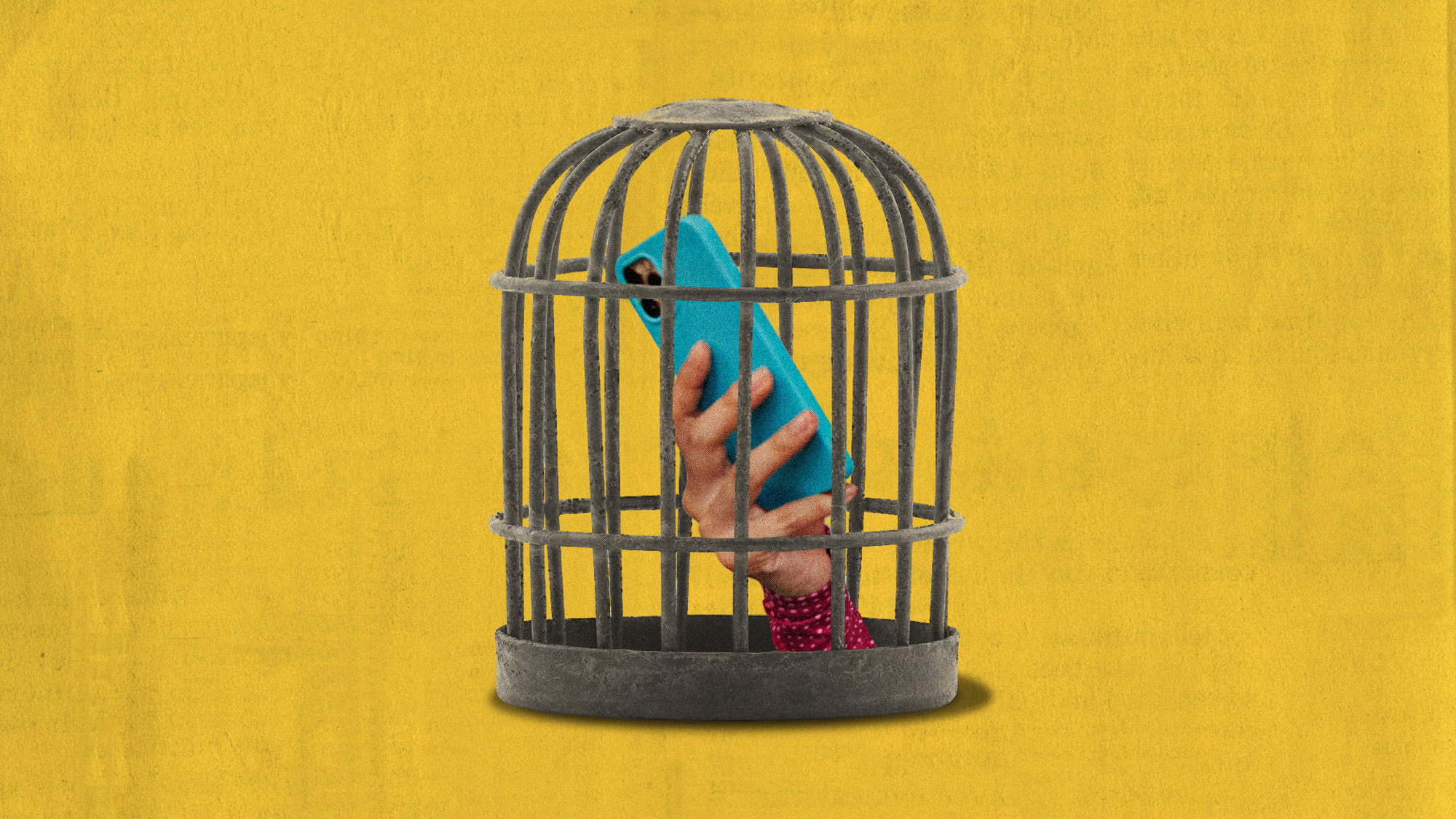5 password habits that put you at risk
These common — and understandable — password shortcuts are a hacker's dream


A free daily email with the biggest news stories of the day – and the best features from TheWeek.com
You are now subscribed
Your newsletter sign-up was successful
Anyone who has gritted their way through a mandatory employee cybersecurity training understands that hackers are gunning for our passwords, which have become the Holy Grails of dark web schemers. A compromised password can give criminals access to everything from your credit card number to your Social Security information, and the fallout can be an enormous hassle. Yet most people are too busy to spend much time thinking about password management or are operating on well-intentioned but extremely dated advice. What can individuals do to stay ahead of the next phishing operation?
Don't use iterations of an existing password
While tempting, using "variations of old passwords" is a strategy that "might offer convenience but can also make passwords predictable to attackers," said Forbes. The temptation to do this is much higher if your organization compels you to regularly update your password because "when forced to change one, the chances are that the new password will be similar to the old one," said the U.K.'s National Cyber Security Centre. That's why forced password expiration is a "dying concept," said the SANS Institute. Nevertheless, if you must update, and your password is TacoTuesday2025*, it would be best not to change it to TacoTuesday2026* next year.
Don't use the same password across multiple accounts
So many bad password habits arise from the difficulty of managing so many accounts, and 78% of respondents in a 2024 survey admitted to recycling passwords across multiple accounts or domains. If you use the same password across a number of domains, you are leaving yourself open to coordinated attacks. Having obtained your skeleton password, hackers will "launch credential-stuffing attacks" by "using those logins to access other accounts," said Dashlane. And because "most online accounts assign your email address as a username, it doesn't take Mr. Robot to crack that code," said PC Mag.
The Week
Escape your echo chamber. Get the facts behind the news, plus analysis from multiple perspectives.

Sign up for The Week's Free Newsletters
From our morning news briefing to a weekly Good News Newsletter, get the best of The Week delivered directly to your inbox.
From our morning news briefing to a weekly Good News Newsletter, get the best of The Week delivered directly to your inbox.
Don't use personal details in your passwords
Another extremely common practice that experts caution against is using "your personal details such as your birthday, hometown or pet's name," said the Canadian Centre for Cyber Security. While tying your passwords to easily accessible life experiences, milestones and individual data obviously makes it easier for you to remember, the problem is that using such details increases your risk because they "can be found by a quick search on social networking sites," said the Department of Homeland Security. "More than half of people admitted that they use familiar names in their passwords," including a child's name, a street name or a parent's name, said Security.org.
Don't give your passwords to other people
It may seem like a good deed, a way to save money and an act of protest against the proliferation of streaming services to give your Netflix information to a friend in exchange for their Max login, but sharing passwords is a major security risk. Because "nearly a third of respondents reported using the same password for all their streaming accounts," this risks "moochers sharing passwords with other moochers without the account holder's knowledge or consent," said PC Mag. This also provides another way for hackers and phishers to gain access to your passwords and your vital information. This even includes password sharing with a spouse or domestic partner. "Your own security might be excellent," said Wired, "but if you've shared your credentials, you're at the mercy of the weakest link."
Don't use short or simple passwords
"Something simple, short and predictable" is a "terrible password," said The World Economic Forum. For example, the password "123456" has been "used over 4.5 million times" and "takes less than a second for hackers to crack." That's an example of how a "simple or short password such as a word or name, a sequence of numbers, or combination of these, can be easily guessed by malicious attackers," said cybersecurity expert David Bader. Unsurprisingly, "as character length increases, the total amount of compromised passwords decreases," said Specops Software. Yet only 20% of respondents in a 2021 survey reported using passwords longer than 12 characters.
A free daily email with the biggest news stories of the day – and the best features from TheWeek.com
David Faris is a professor of political science at Roosevelt University and the author of "It's Time to Fight Dirty: How Democrats Can Build a Lasting Majority in American Politics." He's a frequent contributor to Newsweek and Slate, and his work has appeared in The Washington Post, The New Republic and The Nation, among others.
-
 Political cartoons for February 15
Political cartoons for February 15Cartoons Sunday's political cartoons include political ventriloquism, Europe in the middle, and more
-
 The broken water companies failing England and Wales
The broken water companies failing England and WalesExplainer With rising bills, deteriorating river health and a lack of investment, regulators face an uphill battle to stabilise the industry
-
 A thrilling foodie city in northern Japan
A thrilling foodie city in northern JapanThe Week Recommends The food scene here is ‘unspoilt’ and ‘fun’
-
 Quiet divorce is sneaking up on older couples
Quiet divorce is sneaking up on older couplesThe explainer Checking out; not blowing up
-
 Admin night: the TikTok trend turning paperwork into a party
Admin night: the TikTok trend turning paperwork into a partyThe Explainer Grab your friends and make a night of tackling the most boring tasks
-
 Should parents stop tracking their kids?
Should parents stop tracking their kids?Talking Point Experts warn the line between care and control is getting murkier – and could have consequences
-
 More than a zipper: Young Black men embrace the ‘quarter-zip movement’
More than a zipper: Young Black men embrace the ‘quarter-zip movement’The Explainer More than a zipper: Young Black men embrace the ‘quarter-zip movement‘
-
 Broadway actors and musicians are on the brink of a strike
Broadway actors and musicians are on the brink of a strikeThe explainer The show, it turns out, may not go on
-
 Back to the future: Kids embrace ‘old school’ devices
Back to the future: Kids embrace ‘old school’ devicesUnder the radar From MP3s to sewing machines
-
 Trouble on the seas as cruise ship crime rates rise
Trouble on the seas as cruise ship crime rates riseThe Explainer Crimes on ships reached nearly a two-year high in 2025
-
 Smart glasses and unlocking ‘superintelligence’
Smart glasses and unlocking ‘superintelligence’The Explainer Meta unveiled a new model of AI smart glasses this week, with some features appearing ‘unfinished’ at a less-than-perfect launch
